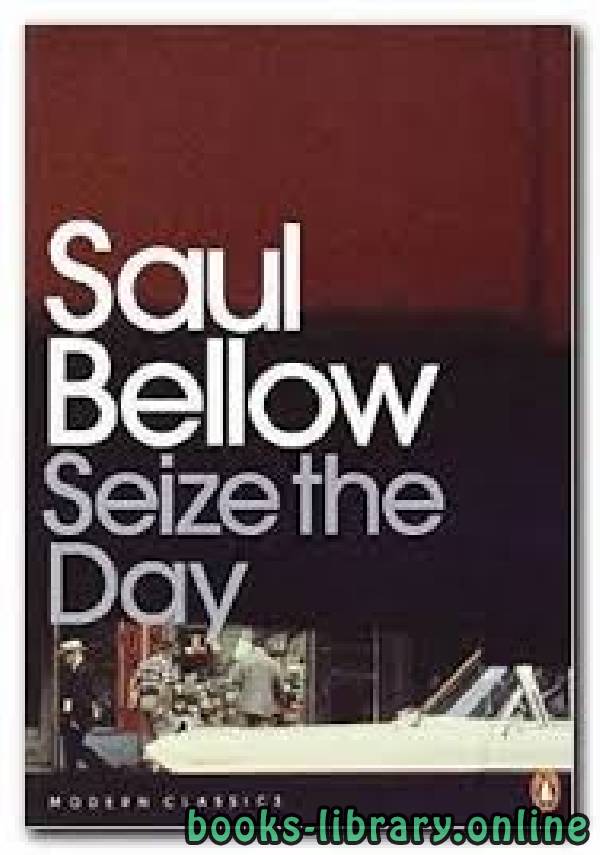📘 قراءة كتاب Saul Bellow‟s Seize the Day: A Modernist Study أونلاين


هذا القسم يحتوى علي كل ما يختص بدراسة الأدب الحديث.
تعود أصول الحداثة الأدبية ، أو الأدب الحداثي ، إلى أواخر القرن التاسع عشر وأوائل القرن العشرين ، خاصة في أوروبا وأمريكا الشمالية ، وتتميز بانفصال واعي للغاية مع طرق الكتابة التقليدية ، في الشعر والخيال النثرية. جرب الحداثيون الشكل الأدبي والتعبير ، كما يتضح من مقولة عزرا باوند "جعله جديدًا".
The impact of literature in modern society is undeniable. Literature acts as a form of expression for each individual author. ... I believe that literature is important because of its purpose and in a society, which is becoming increasing detached from human interaction, novels create a conversation.
Touted as the father of modern English by his contemporaries and later (even modern) critics, Geoffrey Chaucer (1343-1400) remains one of the essential medieval writers that still has prevalence in our literary culture today.
The Main Characteristics of Modern Literature: The characteristics of the Modern Literature can be categorized into Individualism, Experimentation, Symbolism, Absurdity and Formalism. 1-Individualism: In Modern Literature, the individual is more interesting than society.
In broad terms, the period was marked by sudden and unexpected breaks with traditional ways of viewing and interacting with the world. Experimentation and individualism became virtues, where in the past they were often heartily discouraged. Modernism was set in motion, in one sense, through a series of cultural shocks.
Literary modernism, or modernist literature, has its origins in the late 19th and early 20th centuries, mainly in Europe and North America, and is characterized by a very self-conscious break with traditional ways of writing, in both poetry and prose fiction.
noun. Modernism is a technique, thought, discussion, creative work or genre of art and literature that breaks from the classical mold or that is considered cutting-edge. An example of modernism is a technique in art that breaks from classical stylings. YourDictionary definition and usage example.
The following are characteristics of Modernism: Marked by a strong and intentional break with tradition. This break includes a strong reaction against established religious, political, and social views. Belief that the world is created in the act of perceiving it; that is, the world is what we
Literary modernism, or modernist literature, has its origins in the late 19th and early 20th centuries, mainly in Europe and North America, and is characterized by a very self-conscious break with traditional ways of writing, in both poetry and prose fiction. Modernists experimented with literary form and expression, as exemplified by Ezra Pound's maxim to "Make it new."[1] This literary movement was driven by a conscious desire to overturn traditional modes of representation and express the new sensibilities of their time.[2] The horrors of the First World War saw the prevailing assumptions about society reassessed.[3]
Contents
1 Origins and precursors
2 Early modernist writers
3 Continuation: 1920s and 1930s
4 Modernist literature after 1939
4.1 Late modernism
4.2 Theatre of the Absurd
Saul Bellow‟s Seize the Day: A Modernist Study
The study starts with a brief introduction to modernism, modernist fiction, and a short analysis of Bellow‟s Seize the
Day, which is followed by the modernist study of Seize the Day.
II. MODERNISM
Literary modernism is a twentieth-century movement which takes new aspects of literature, as concerned with the
changing situation of the society, into account. The exact period in which the movement appeared is much debated by
critics. Brooker argues that some critics extend the period from 1880 to 1950, while some others divide the period and
“give priority to the prewar years," or” post-war years". (1972, p.4) some other critics believe that the movement started
in 1890 and finished in 1945 when the second world war was over. The debate over the beginning or end of modernism
is not as significant as its literary ideology which is to be discussed in this research.
Modernism as a “creative violence" (levenson, 2002, p.2) deviates from the literary tradition and turns the holistic
and taken-for- granted literary concepts into new internal and mental trends. The significant point to be made here is
that "modernist" must be distinguished from “modern". Modern can denote anything
characteristics of modern literature
modernism definition and characteristics
modernism
modernist
main characteristics of modernist poetry
elements of modernism
characteristics of modernism pdf
the most important characteristics of modernism
characteristics of modern literature
modernism definition and characteristics
modernism
modernist
main characteristics of modernist poetry
elements of modernism
characteristics of modernism pdf
the most important characteristics of modernism
سنة النشر : 2011م / 1432هـ .
حجم الكتاب عند التحميل : 0.2MB .
نوع الكتاب : pdf.
عداد القراءة:
اذا اعجبك الكتاب فضلاً اضغط على أعجبني و يمكنك تحميله من هنا:

شكرًا لمساهمتكم
شكراً لمساهمتكم معنا في الإرتقاء بمستوى المكتبة ، يمكنكم االتبليغ عن اخطاء او سوء اختيار للكتب وتصنيفها ومحتواها ، أو كتاب يُمنع نشره ، او محمي بحقوق طبع ونشر ، فضلاً قم بالتبليغ عن الكتاب المُخالف:
 قبل تحميل الكتاب ..
قبل تحميل الكتاب ..
يجب ان يتوفر لديكم برنامج تشغيل وقراءة ملفات pdf
يمكن تحميلة من هنا 'http://get.adobe.com/reader/'
ACADEMY PUBLISHER
 ❰ ناشرين لمجموعة من المؤلفات أبرزها ❞ Saul Bellow‟s Seize the Day: A Modernist Study ❝ ومن أبرز المؤلفين : ❞ Noorbakhsh Hooti ❝ ❱. المزيد.. كتب ACADEMY PUBLISHER
❰ ناشرين لمجموعة من المؤلفات أبرزها ❞ Saul Bellow‟s Seize the Day: A Modernist Study ❝ ومن أبرز المؤلفين : ❞ Noorbakhsh Hooti ❝ ❱. المزيد.. كتب ACADEMY PUBLISHER 

 منصّة المكتبة
منصّة المكتبة 